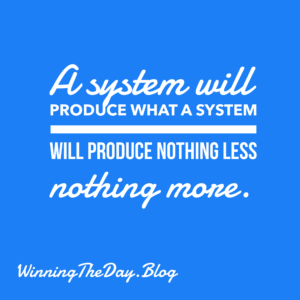Hiring new talent seems like a straightforward path to growth, right? But beneath the surface of onboarding paperwork and welcome lunches lie significant, often overlooked costs, especially in performance-driven industries like mortgage lending. A recent article in National Mortgage News sheds light on the real financial burden lenders face when bringing on new Loan Officers (LOs) – and the implications resonate deeply within the real estate brokerage world too.
The Price Tag of a New Loan Officer: It’s More Than You Think
The article highlights that the expense of hiring an LO goes far beyond just their initial salary. Did you know:
- The median cost to simply recruit a loan officer is around $1,633, and the hiring process can take a lengthy 36 to 42 days. This includes advertising, screening, and interview time – resources that could be focused elsewhere.
- Once hired, expect to invest approximately $1,000 in licensing and initial training.
- The real sting comes with “failed hires” – those who don’t meet production goals or leave quickly. This results in a direct loss of the initial recruitment and training investment, plus any bonuses paid.
- Attempting to recoup bonuses from departing or underperforming LOs can even lead to costly legal battles.
- Supporting underperforming LOs increases a lender’s overall operational costs, impacting their profitability and ability to offer competitive loan rates. In fact, total loan production expenses can average around $10,716 per loan, a figure heavily influenced by LO performance.
- It can take a staggering 1 to 2 years for a new LO to reach the productivity level of a seasoned professional. If they leave before then, that’s a significant period of lost potential.
- The mortgage industry faces a high attrition rate of 30%-35%, meaning the risk of a “failed hire” is substantial.
- The departure of an LO can even impact client relationships, with one study suggesting a potential 20% drop in the likelihood of existing clients getting a new loan from the same bank.
Corollary for Real Estate Brokerage Clients: What Does a Failed Agent Hire Cost YOU?
Now, let’s pivot this to the world of real estate brokerages. While the specific licensing and loan production metrics differ, the underlying principles are strikingly similar. A “failed hire” of a real estate agent can cost your brokerage in numerous ways:
- Recruitment Costs: Time and resources spent on advertising, interviewing, and onboarding new agents.
- Training and Mentorship: Investment in coaching, training programs, and the time senior agents or brokers spend mentoring new recruits.
- Lost Productivity: The period it takes for a new agent to become consistently productive, and the lost commission potential if they leave before reaching that level.
- Negative Impact on Team Morale: Underperforming agents can drain the energy and resources of the team, potentially demotivating top producers.
- Damage to Reputation: Agents who provide poor service can negatively impact your brokerage’s reputation and future client acquisition.
- Loss of Potential Revenue: Missed opportunities and unclosed deals due to an agent’s lack of skills or commitment directly impact your bottom line.
Implications for Your Brokerage:
Just like mortgage lenders, real estate brokerages operate on margins. Failed hires erode those margins, impacting profitability and hindering growth. In today’s competitive market, every agent needs to be a valuable contributor.
Action Steps: Mitigating the Cost of Failed Hires
So, what can you do to minimize the risk and cost of failed agent hires?
- Focus on Strategic Hiring: Don’t just fill seats. Develop a clear understanding of the skills, personality traits, and core capacities that lead to success in your brokerage.
- Implement Robust Screening Processes: Go beyond the resume. Utilize assessments and in-depth interviews to evaluate a candidate’s potential fit and likelihood of success.
- Invest in Comprehensive Onboarding and Training: Provide new agents with the tools, knowledge, and support they need to thrive from day one.
- Foster a Supportive and Collaborative Culture: A positive environment can improve agent retention and productivity.
- Leverage Assessment Tools: Consider incorporating tools like our CCI (Core Capacity Index) assessment to gain deeper insights into a candidate’s innate abilities and potential for success in a real estate role. The CCI can help you identify individuals with the core capacities that align with high performance, significantly reducing the risk of a costly failed hire.
My Conclusion?
The National Mortgage News article serves as a powerful reminder that the true cost of hiring extends far beyond the initial offer letter. By understanding these hidden expenses and implementing strategic hiring practices, including the use of insightful assessment tools like the CCI, both mortgage lenders and real estate brokerages can make smarter hiring decisions, protect their bottom line, and build high-performing teams for long-term success.
